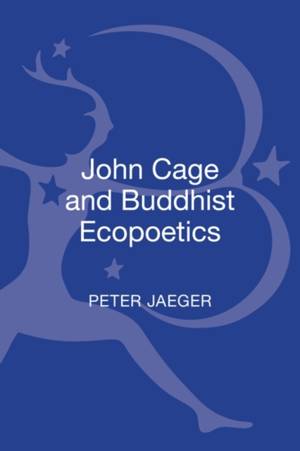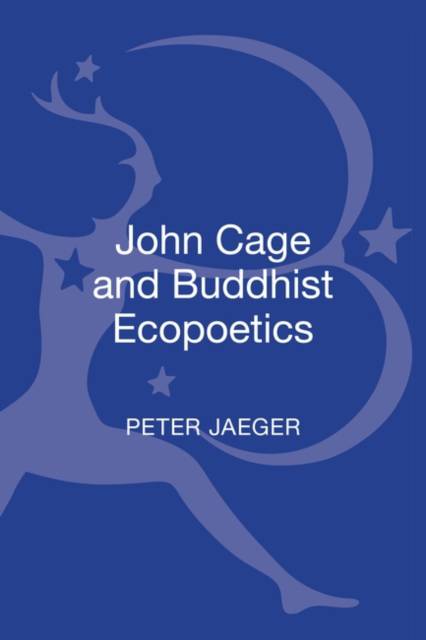
- Afhalen na 1 uur in een winkel met voorraad
- Gratis thuislevering in België vanaf € 30
- Ruim aanbod met 7 miljoen producten
- Afhalen na 1 uur in een winkel met voorraad
- Gratis thuislevering in België vanaf € 30
- Ruim aanbod met 7 miljoen producten
Zoeken
Omschrijving
John Cage was among the first wave of post-war American artists and intellectuals to be influenced by Zen Buddhism and it was an influence that led him to become profoundly engaged with our current ecological crisis. In John Cage and Buddhist Ecopoetics, Peter Jaeger asks: what did Buddhism mean to Cage? And how did his understanding of Buddhist philosophy impact on his representation of nature? Following Cage's own creative innovations in the poem-essay form and his use of the ancient Chinese text, the I Ching to shape his music and writing, this book outlines a new critical language that reconfigures writing and silence.
Interrogating Cage's 'green-Zen' in the light of contemporary psychoanalysis and cultural critique as well as his own later turn towards anarchist politics, John Cage and Buddhist Ecopoetics provides readers with a critically performative site for the Zen-inspired "nothing" which resides at the heart of Cage's poetics, and which so clearly intersects with his ecological writing.Specificaties
Betrokkenen
- Auteur(s):
- Uitgeverij:
Inhoud
- Aantal bladzijden:
- 144
- Taal:
- Engels
- Reeks:
Eigenschappen
- Productcode (EAN):
- 9781441104663
- Verschijningsdatum:
- 28/11/2013
- Uitvoering:
- Hardcover
- Formaat:
- Genaaid
- Afmetingen:
- 140 mm x 218 mm
- Gewicht:
- 294 g

Alleen bij Standaard Boekhandel
+ 508 punten op je klantenkaart van Standaard Boekhandel
Beoordelingen
We publiceren alleen reviews die voldoen aan de voorwaarden voor reviews. Bekijk onze voorwaarden voor reviews.








